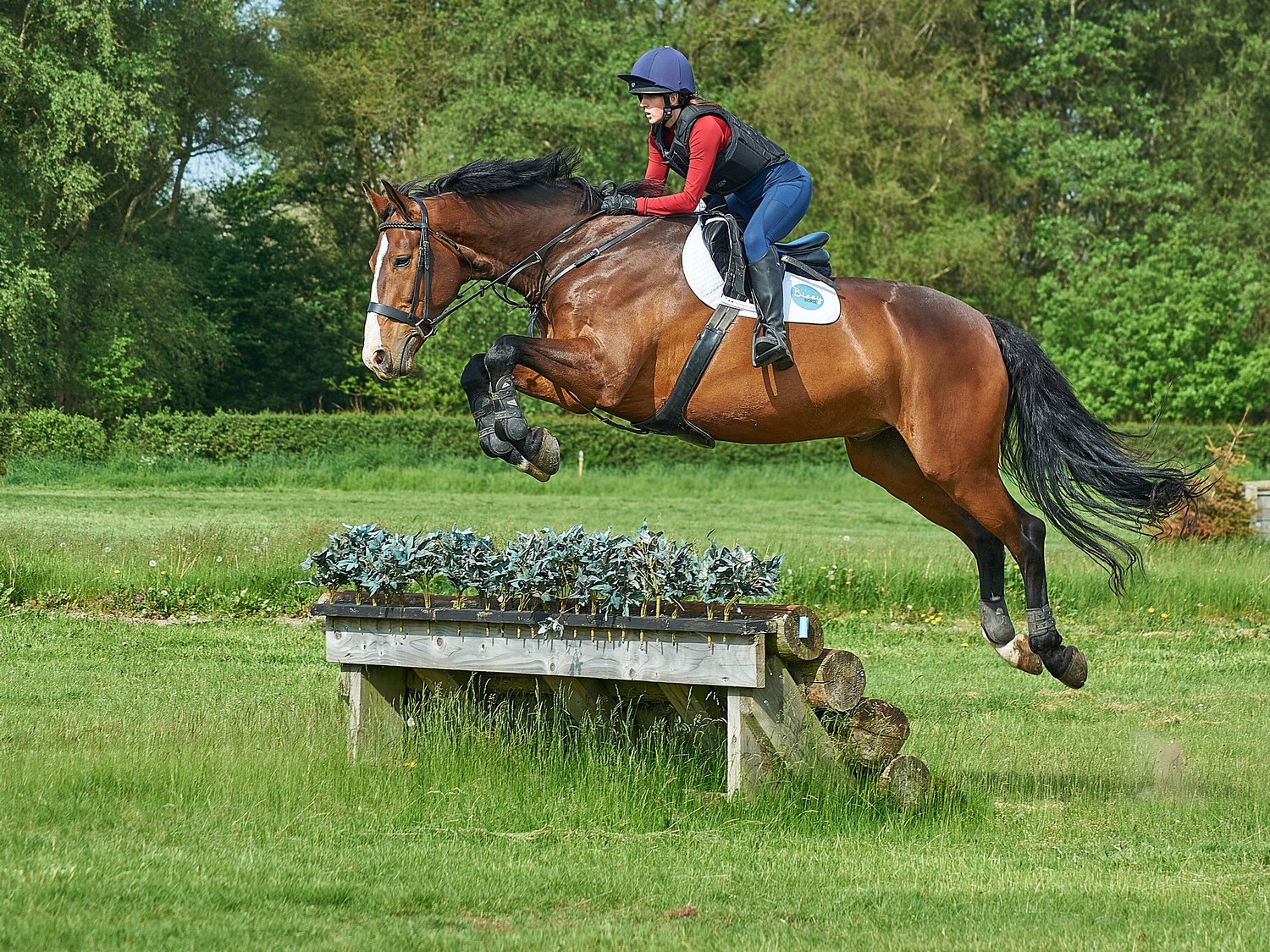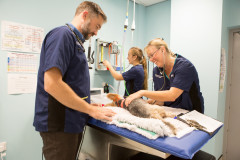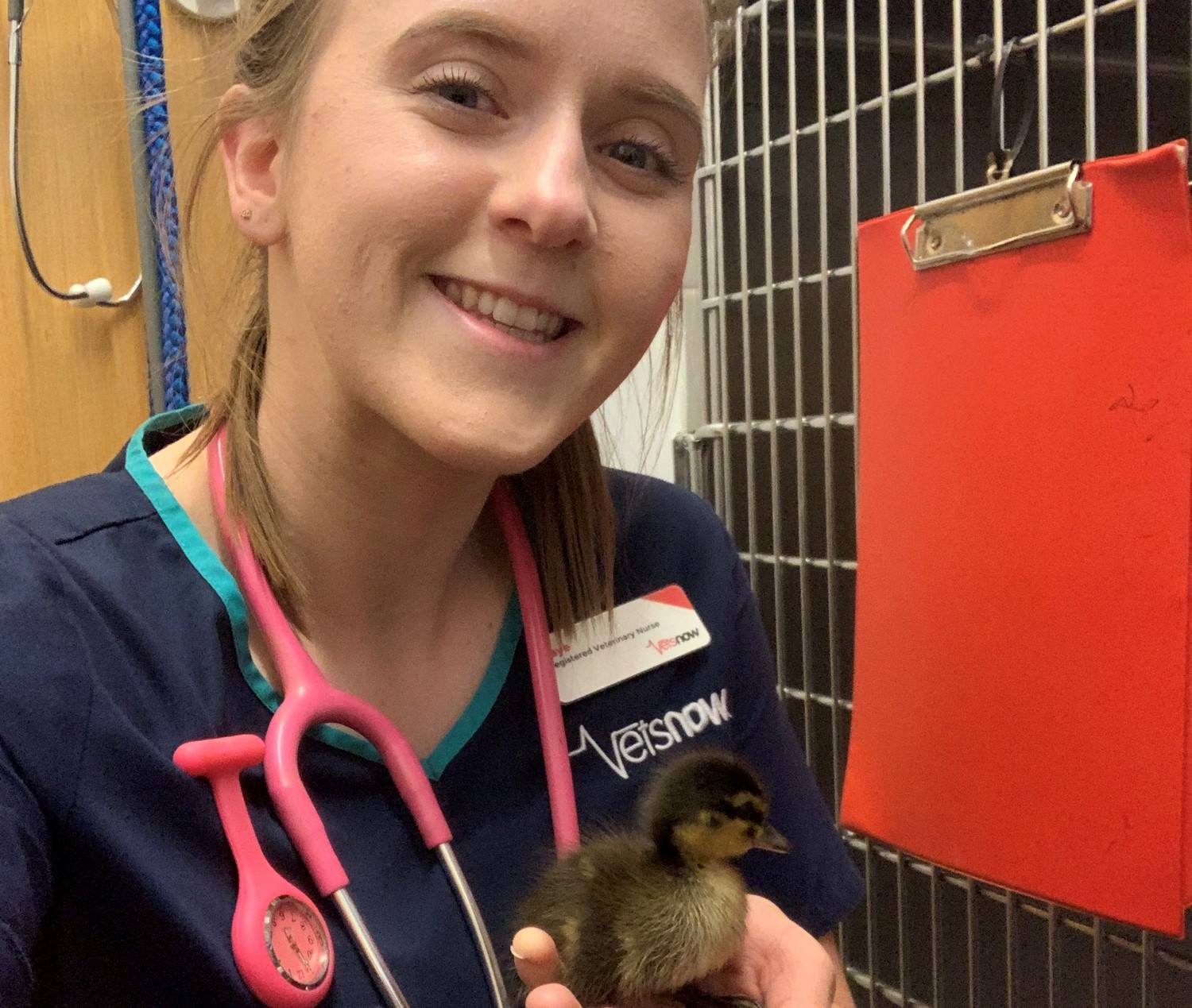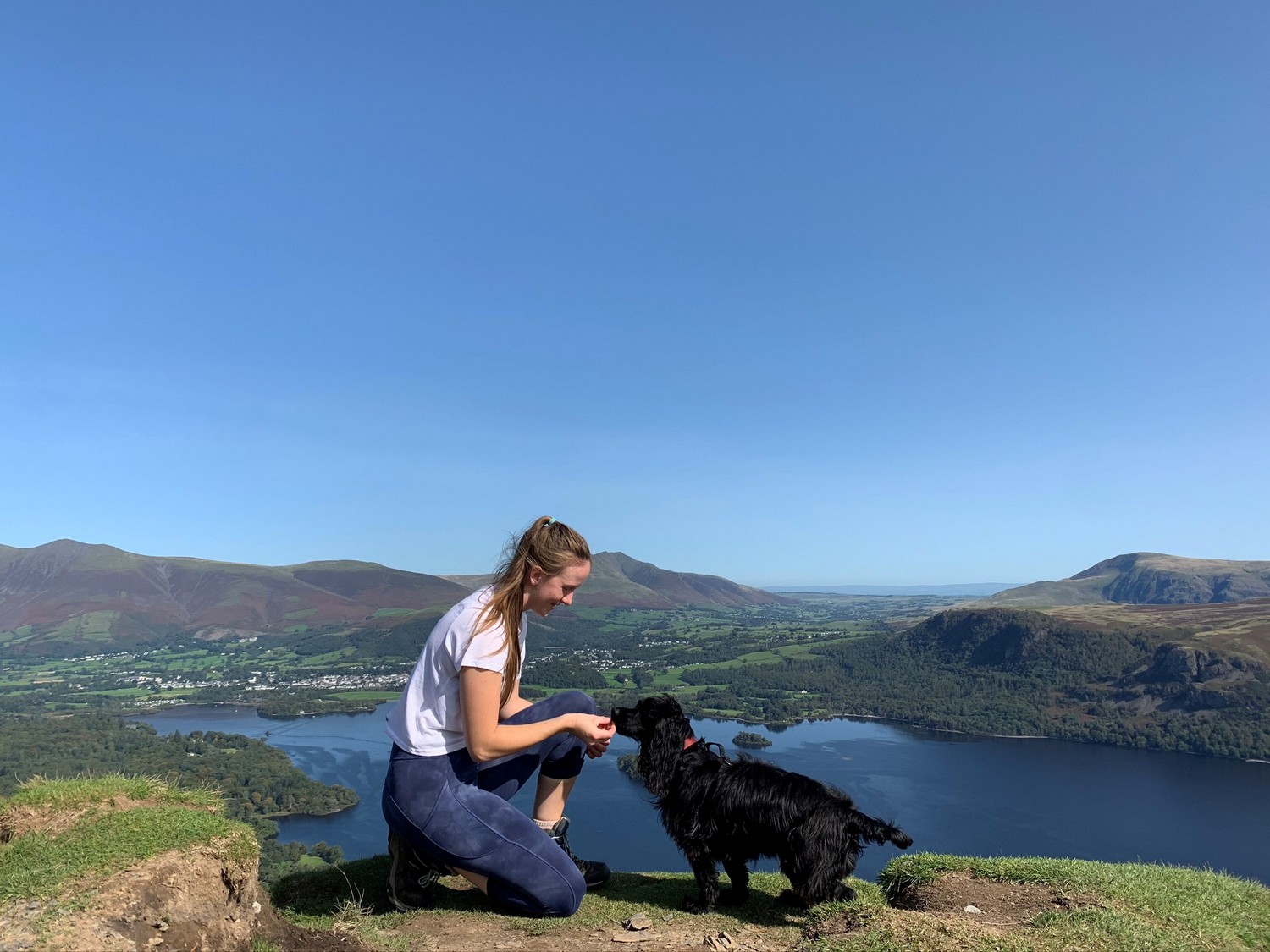Thriving under pressure and keen to develop, Faye knew from her first shift that Vets Now was for her
There’s no single journey into emergency and critical care for vet nurses. Some discover the thrill and impact of ECC while working elsewhere, and others set their sights on it early on in their careers.
Faye Robinson, who has been an RVN at our Gateshead clinic for three-and-a-half years, definitely falls into the latter category. After developing a passion for ECC while training, Faye took deliberate steps to ensure her career would take her there – including shadow shifts at night while working during the day.
Here, Faye tells us how burning the midnight oil fired her passion for working in ECC and helped land her “dream job” with Vets Now.

What was the inspiration to begin your vet nursing career?
I started at 18, going straight into it after my A-levels and I’ve got to give credit to my career advisor at school. It was something I hadn’t really thought about, but I’m a big animal lover – I’ve got my horses and I’ve always had pets – and after she suggested it, I spent some time in local practices. I knew right away it was the job for me and I loved it so much I actually cried when it was time to leave after the first week.
Where did you train?
That was at Newcastle College, but I was struggling to get the placement I needed and didn’t find the one I needed until a week before my A-level results. My back-up was geography and I almost ended up going to university to study that, but I got in and qualified as an RVN the month before my 21st birthday.
Where did you work then?
I had always been interested in emergency medicine – I had debated being a paramedic – and that became even more of a passion at college as one of the teachers used to work for Vets Now. She spoke so highly of them and ECC were my favourite lessons by far. I trained in a day practice where I stayed for six months after qualifying. It was one of the vets I was working with who suggested Vets Now after a discussion about what I’d like to do in the future.

Join us in ECC
As a vet nurse at Vets Now you’ll develop your skills and make a real difference. Simply put, you’ll be the vet nurse you trained to be. Search our current vacancies here.
Current vacanciesAnd what was it about ECC?
I thrive on pressure and obviously that’s what you get in ECC medicine. It’s so interesting and you have the opportunity to make a difference in a short space of time, so when I got the chance to spend some time at Vets Now, I jumped straight in. I had been at work [in day practice] all day, had a bite to eat and went along that night. I was so blown away by everything that was going on, I stayed until 4am. We had a very poorly diabetic dog and I saw the head nurse teach one of the vets how to place a central line and I was amazed at the knowledge and skill. I knew from that first shift this was what I wanted to do. I always want to do better, and I felt I was stagnating a bit at day practice. Vets Now really was my dream job.
How did you fit into life at Vets Now?
I started on back shifts where I was working 6pm to midnight alongside another nurse, which really eased me into it. So, you always had that bit of mentoring and it came on top of a lot of online learning material Vets Now had made available even before I started. And once here, I did a 12-week online course that covered things like anaesthetics, fluids, trauma and breathing issues.
What would be a typical night shift?
You’d come in at 6pm and do a ward round where you’d have anything between five and 15 in-patients needing medication, feeding and general supportive care. Then there would be triaging animals that come in, making a care plan alongside the vet and often dealing with anaesthetics. Because of the lockdown puppy boom, we’ve been seeing a lot of C-sections and then there are GDV’s and anything else that might need major surgery.

Tell us a little more about your work with anaesthetics.
It’s all very well doing anaesthetics on a stable animal for a routine op in day practice, but here it’s often an unstable animal undergoing emergency surgery. I remember my first one, which was a GDV and splenectomy, and I was really quite nervous. However, I had another nurse alongside to answer any questions and I actually asked my head nurse afterwards to let me work on as many as possible so I’d get better and better, which was just what happened.
How do you feel your nursing skills have improved?
I’ve been here three-and-a-half years and they really have improved hugely. I feel confident and calm at work. I know exactly what I’m doing in almost all situations, and I don’t flap. There are so many skills which I didn’t realise were additional to more routine nursing. I did some locum work in day practice and the other nurses were amazed at even small things like how I could put in difficult IV catheters or sampling from different veins or helping the vets with some diagnosis suggestions. That’s because at Vets Now the nurses are very much part of the patient’s care and your opinion really matters.
And is it very much a team ethos?
Definitely. We have a great team here and we bounce off one another. There’s almost an unspoken language between us. But I also feel I work really well on my own, as I’ve done it so many times, so it’s the best of both worlds.

How do you find the work-life balance the job gives you?
It’s so much better than day practice – I don’t think I could ever leave and go back to 9am – 5pm! I was always so exhausted I couldn’t do anything after work. We do longer shifts, but then on the days off I can get out with my horses. I’ve just started competing again. And, of course, I have plenty of time with my cocker spaniel Nellie.
You spoke about making a difference, is there a case that really demonstrates that?
We had a dog come in that belonged to a girl I knew from my horse riding. He had been hit by a car and suffered such severe face and chest trauma he was too unstable to transfer to a specialist. There was so much nursing care over a longer period that you couldn’t help but become really involved. It was just so nice to see him get better and go home and when the girl came, I could see her joy. That’s always the best part, handing back a patient in the morning and seeing the owner’s happiness when a dog that had to be carried in really suffering is able to walk back out.
Would you like to follow in Faye’s footsteps? We’re looking for talented vet nurses to join our teams across the UK. Search our current vacancies here or contact our talent team to talk through your options .
